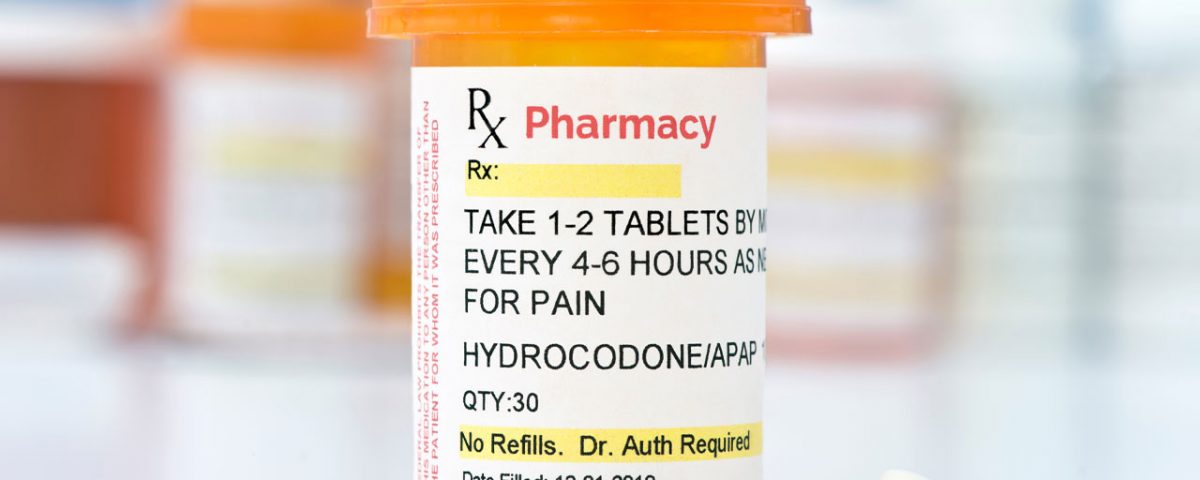If you’ve ever been prescribed painkillers, then you may remember your doctor saying to avoid drinking alcohol while taking it. On its own, alcohol acts as a central nervous system depressant, producing a sense of relaxation and well-being, commonly referred to as a “buzz.” However, when it’s mixed with other drugs, it can intensify the side effects of the medication unpredictably and dangerously. The same is true about mixing hydrocodone and alcohol. While opiates make great pain relievers on their own, when taken with alcohol, it becomes a recipe for disaster. Banyan’s rehab in Texas explores the very real dangers of this combination, along with the long-standing impact of polysubstance abuse in the lives of those affected.
What Is Hydrocodone?
Commonly sold under the brand name Zohydro ER, hydrocodone is an opioid used to treat pain, manage severe coughing, or alleviate discomfort after major surgery. Hydrocodone is also an active ingredient in other commonly used medications, such as Vicodin, Anexsia, Lorcet, and Norco. Like other opioids, hydrocodone works by binding to opioid receptors on the surface of nerve cells, depressing the central nervous system.
While this drug’s powerful pain-relieving properties make it effective in treating chronic pain, they also make it a common drug of abuse. Not only does hydrocodone alleviate physical discomfort, but it also stimulates the release of dopamine and the reward system to produce a sedative and euphoric high, especially when taken in high doses. As a result, it’s one of the many drugs that have contributed to the opioid epidemic and the growing demand for inpatient drug treatment.
How Long After Taking Hydrocodone Can You Drink Alcohol?
The precise time after taking hydrocodone at which it is safe to consume alcohol depends on a person's metabolism, dose, and general health. However, it's best to postpone thinking about drinking alcohol until the hydrocodone effects have entirely worn off. Given that the effects of hydrocodone can linger for several hours and that each person's half-life of the medicine is unique, waiting several hours or even longer may be necessary. Given the potential risks of mixing alcohol and hydrocodone, it is wise to speak with a healthcare provider before deciding whether to drink alcohol while taking this medicine. Acting cautiously and avoiding polysubstance misuse is often advised for the sake of one's own safety and well-being.
What Are the Side Effects of Taking Hydrocodone With Alcohol?
If you’re still wondering, “can you drink alcohol on hydrocodone?” the answer is a resounding no. Mixing alcohol with hydrocodone is extremely dangerous because they’re both central nervous system depressants. Alone, each can produce sedation and cognitive impairment, but together, their side effects are intensified to the point where they can potentially become life-threatening.
Some common side effects of mixing hydrocodone with alcohol include:
- Nausea and/or vomiting
- Dehydration
- Fluctuation in blood pressure
- Irregular heart rate
- Dizziness
- Loss of coordination
- Impaired judgment
- Abnormal behavior
- Loss of consciousness
- Shallow, slow, or ineffective breathing (respiratory depression)
- Coma
Additionally, because both hydrocodone and alcohol are addictive when abused, using them together for long periods often leads to addiction. However, despite their dangers, people take them together for the relaxation, calmness, and euphoria they produce. But while you’re riding this high, these substances are slowly producing damage that becomes more noticeable over time.
Hydrocodone and Alcohol Overdose Symptoms
When taken together, alcohol and hydrocodone intensify each other’s side effects, causing you to lose your motor skills, coordination, and ability to think clearly. Because both drugs are depressants, they also slow your heart rate and breathing down to the point where you don’t get enough oxygen to the brain, causing you to lose consciousness.
The most prominent danger of this combination, however, is overdose. When a person overdoses on hydrocodone and alcohol, they may experience symptoms like:
- Pinpoint pupils
- Loss of consciousness
- Respiratory depression
- Coma
- Unresponsiveness
- Limp body
- Awake but unable to talk
- Pale or clammy skin
- Blue lips, fingernails, and skin
- Slow, erratic, or unidentifiable pulse
- Slowed or stopped breathing
- Choking sounds (“death rattle”)
- Nausea and/or vomiting
Drinking alcohol with hydrocodone or other opioids is also dangerous because opioids affect your inhibitions or ability to make sound decisions, causing you to drink too much or take too many pills. This further increases your risk of overdosing. Moreover, because hydrocodone contains acetaminophen, alcohol and hydrocodone abuse, when it lasts long-term, it can lead to liver toxicity, disease, or failure.
It’s also important to keep in mind that alcohol and hydrocodone intoxication can occur even if you don’t mean to take them together. If you drink hydrocodone while alcohol is still in your system, then you may experience the side effects mentioned above. If you aren’t careful, you could become accustomed to this combination and develop an addiction or overdose. Repeatedly overdosing on opioids and alcohol can lead to permanent brain damage in the long run.
The Impact of Polysubstance Abuse
Polysubstance abuse, a pervasive and concerning phenomenon, occurs when individuals engage in the simultaneous or sequential use of multiple substances. Concurrent alcohol and hydrocodone usage is one particularly risky combination that has drawn attention. As the combination increases the risks and negative effects associated with each substance separately, the impact of such polysubstance usage can be extremely damaging and even life-threatening.
Alcohol and hydrocodone usage have effects that go beyond the dangers to one's health. The difficulties of withdrawal and recovery might be made much more difficult by prolonged or frequent use of this combination, which can lead to the emergence of physical dependency and addiction. Additionally, the presence of one substance may obscure the effects of the other, which could encourage users to consume more of either one or both, increasing the risk of injury. Addiction recovery strategies that include education, prevention, early intervention, and access to treatment resources are necessary to address the effects of hydrocodone and alcohol polysubstance abuse and lessen the serious and possibly fatal consequences of this risky combination.
Alcohol and Opioid Abuse Treatment
Addiction, in general, can also impact your career, finances, and relationships. But no matter how long you’ve been addicted, you’re never far from hope. Your recovery can begin with the help of our Texas rehab. We usually start our patients off with medically monitored detox to alleviate withdrawal symptoms and help them manage drug cravings. Then, they can move on to their opioid rehab program, where they may receive counseling and therapy to overcome their addictions.
If you’re interested in getting help for yourself or a loved one, call Banyan Treatment Centers today at 888-280-4763 to learn more about our drug addiction treatment in Texas.
Related Readings:









